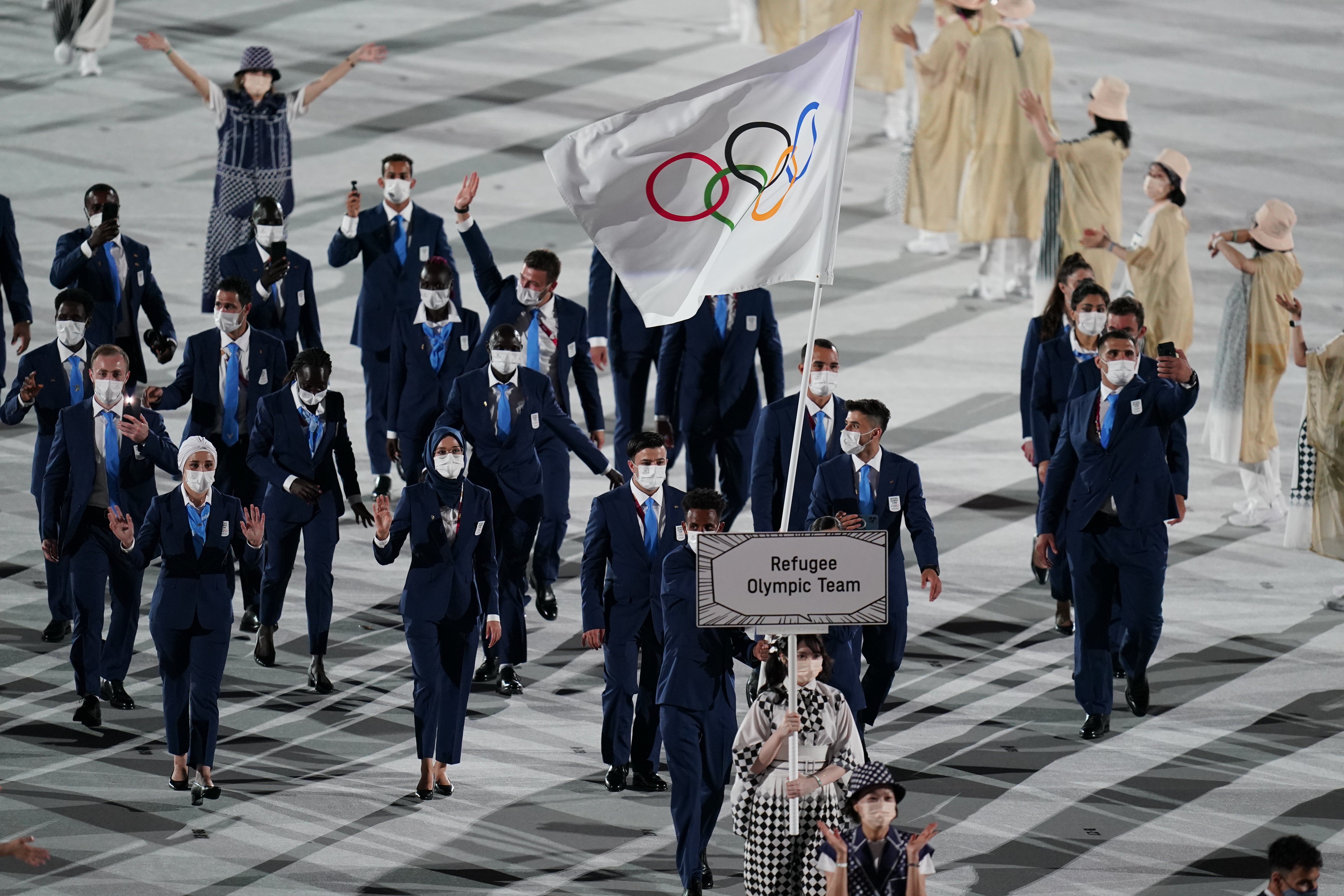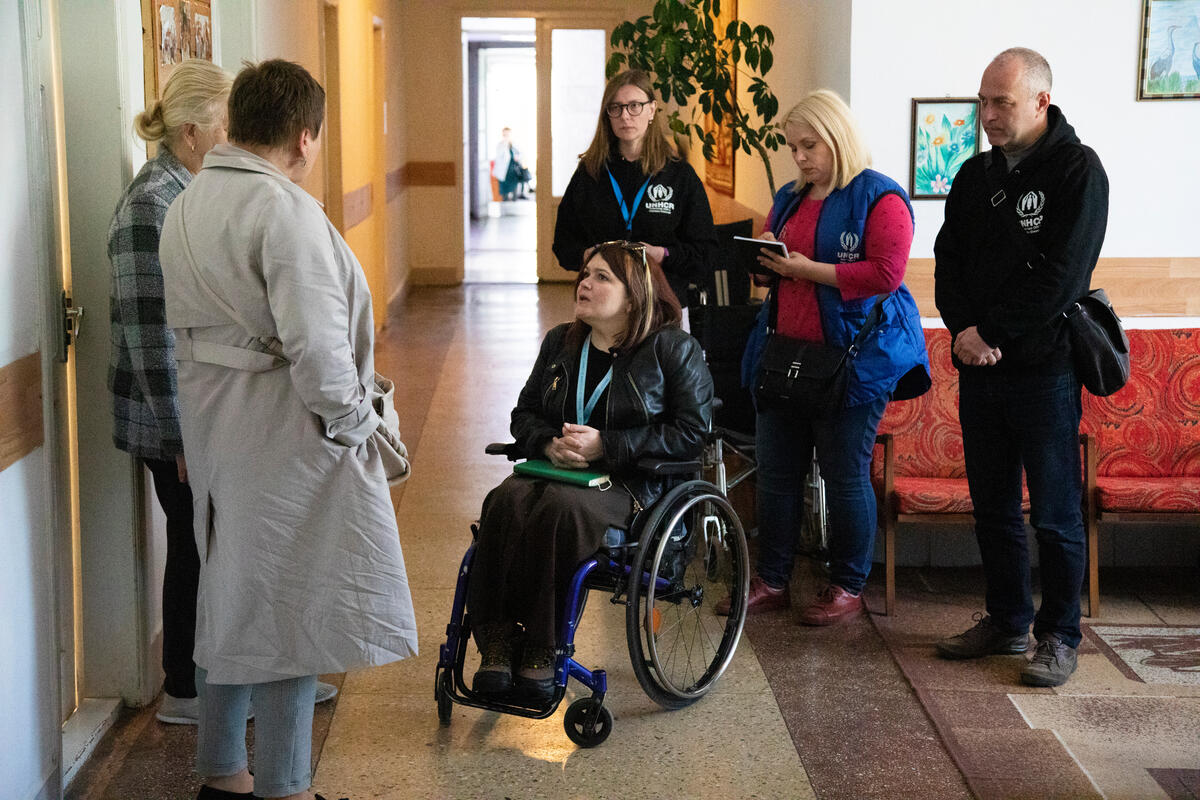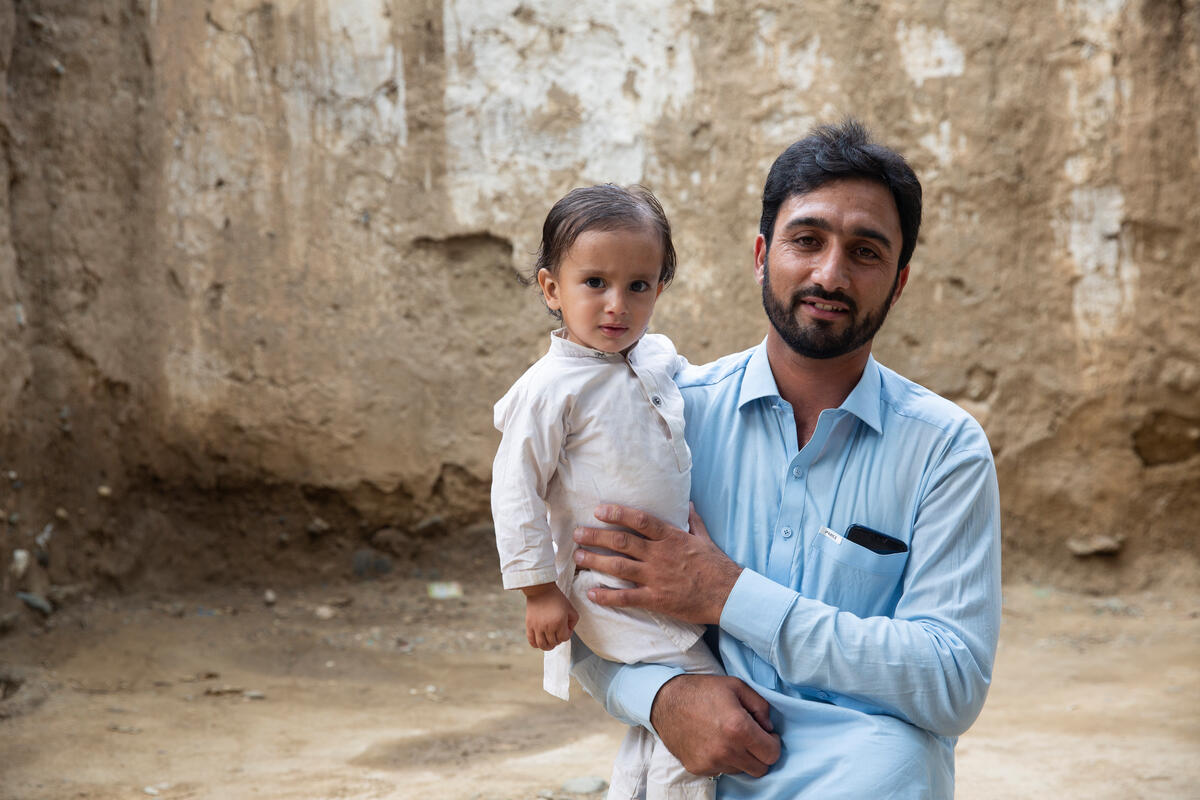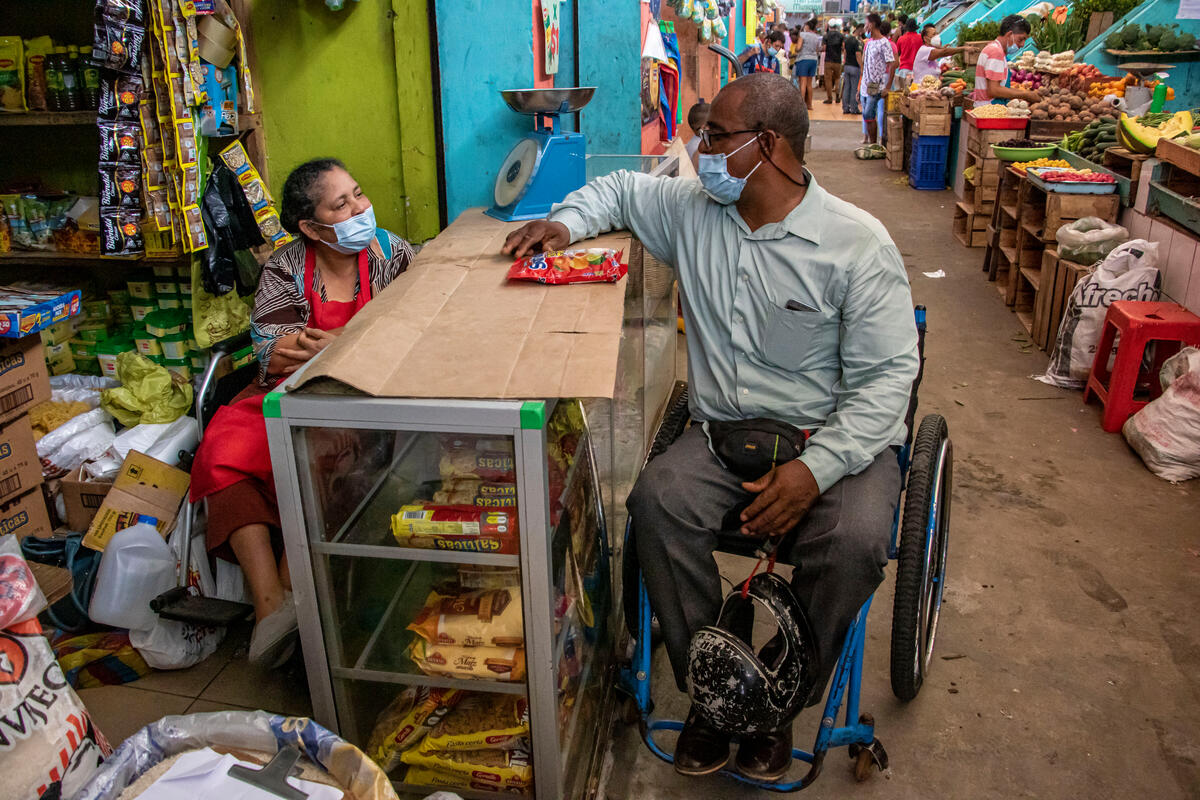Q&A: Refugee worker turns a disability into an advantage
Q&A: Refugee worker turns a disability into an advantage

GENEVA, November 30 (UNHCR) - The UN refugee agency will be marking International Day for Persons with Disabilities on Monday with a panel discussion in Geneva about UNHCR's role on the rights of those with disabilities. Among those taking part will be Safak Pavey, a 30-year-old UNHCR public affairs officer in Geneva. Pavey suffered a grievous disability a decade ago when she was an art student in Switzerland. That has not prevented the outgoing aid worker from Istanbul from leading a full, active and normal life. She talked to Web Editors Haude Morel and Leo Dobbs about her life and work with UNHCR. Excerpts from the interview:
What do you do for UNHCR?
I work in the external relations division. I'm the focal point for the annual Nansen Refugee Award [given to a person or group for outstanding services in supporting refugee causes] and I produce public awareness materials. I have been working for UNHCR for about four years now. I started as the consultant for child rights and education in the region from the Middle East to North Africa. Then I was appointed external relations officer in Iran, which covers both the Afghan and Iraqi refugee situations and repatriation programmes.
Tell us about your disability
It was about 10 years ago. I was involved in a train accident at Zurich station and I lost my left leg and left arm. Since then I've been an active user of prosthetic limbs and wheelchairs. I have a case [before the European Court of Human Rights in Strasbourg] with Switzerland, so I can't say anything more.
How did that affect your life?
I can say it brings its own difficulties, but at the same time it was an immense experience. It may have contributed to my empathy with the world and other people. I see it as an advantage and strength now, not as a disadvantage.
What about your work in the field? Have you had problems?
You do have problems. From the most developed to the least developed countries, you face different difficulties in your daily life. It can include attitudes towards disability. In some places you might be perceived as sinful and shameful, a person to be hidden or locked away. In some places, you mainly face accessibility and mobility problems.
But my disability has also had a positive affect on my relationship with refugees.... It gives you different ways of communicating with people. Sometimes refugees with difficult problems choose you to speak to, even though it's not your area of expertise. That brings a different communication channel and I believe that staff with disabilities can have much more sensitivity towards vulnerable issues.
Didn't you have particular problems in Iran?
Very much so, especially going through security checks in airports.... All the humanitarian aid workers and diplomats faced problems going through the security checks ... but with me, it was an extra excuse to be difficult.
I was harassed by security officers. One of my legs was taken. I was stopped at Bushehr Airport [in south-west Iran], which is a very sensitive area, after coming back from Iraqi camp visits. They took away my passport and said they wouldn't let me on the flight unless I took off my leg.... It was very, very difficult I have to say. There were 21 very serious incidents.
But aside from my own experiences, what affected me most was that awareness [about people with disabilities] was not there in a country that went through the Iraq-Iran War, which produced millions of disabled people.
Would you go back to the field?
I would definitely go back to the field. I also went to Tindouf in Algeria and worked with Sahrawi refugees for UNHCR. It was an equally difficult environment but I was not deliberately targeted because of my disability. I would go back immediately to the field.
Are there many people with disabilities in UNHCR?
Not really. I was employed by a disabled member of staff and I was inspired by her. But we now have a working group [looking at developing policies for people with disabilities] on the DHRM [Division of Human Resources Management]. I'm part of that and it also includes medical services, protection services, ethics and diversity officers and DHRM policy officers.
At the recruitment level, very, very few people with disabilities have been hired. I'm one of them. As to staff who received disabilities, including mental, due to the hazards of their work, I'm sure there are many.
But I think it is wrong to give disabled people work out of a sense of charity. I heard that in one country, one employee lost his arm and so the office decided to hire him as a driver. It is possible to do such work with prostheses, but I think we should look at the career development of disabled people appropriately. We should use people for their abilities and not to be charitable.
I remember in one country, the Welfare Ministry hired a disabled teaman who had big mobility problems. I later learned that he was more qualified than the minister himself, but because he was disabled people found him a menial job because they thought they were doing good. But he had a degree in political science and should have been hired for a post suitable to his ability. I think it is important to change the charity mentality.
Does UNHCR have any specific policies on disability?
There are some policies incorporated into our code of conduct and protection services, but there is nothing comprehensive. However, after some lobbying by staff, UNHCR has been inspired by the spirit of the new human rights Convention [on the rights of persons with disabilities, which was adopted by the UN General Assembly in December 2006 and opened for signature on March 30 this year] to set up a working group that is to look at the development of the policies both for staff and refugees with disabilities. This will cover important principles ranging from recruitment and anti-discrimination to accessibility in our buildings and protection and assistance.
What is happening on International Day for Persons with Disabilities?
We thought it would be a good step to start talking about these issues, in-house also.... It's a UN day and this year's theme is, "Decent Work," which is a perfect opportunity for us to start advocating and raising awareness about the need to have more disabled colleagues. Or at least to open the doors to them, to create a spark in the minds of our peers, our managers. And to talk about accessibility in our building.
Professor Gil Loescher [who lost both legs in the August 2003 bombing of the UN headquarters in Baghdad] is coming for the panel discussion that we will be doing on December 3. The UN Human Rights Commission will familiarize our staff with the Convention. There will be a women's commission, talking about new pilot projects that we might do in the context of refugee women and children with disabilities. We also want to highlight the current 16 Days of Activism to Eliminate Violence Against Women as the Convention emphasizes that women with disabilities are being exposed to the highest levels of violence. Staff from Handicap International will talk about armed conflict and emergencies.
What would you tell a UNHCR recruiter about disabled job seekers?
Their disability is definitely a positive, natural skill because they will bring a lot of different approaches to many situations. They create solutions to things every minute. Problem-solving and planning is in their daily life, it's a natural managerial skill. That would be a positive thing for me.
Also it depends on the person's qualifications. The job function should fit the competence. Also in my mind, I would be thinking that this person has probably put more into their study because the education system is not designed for people with disabilities.... They're very good at web and internet skills. I would think about all those dimensions when looking at competencies.
In the end, we are looking at diversity. The question is, do we want to live and work together with our differences. I certainly do.









